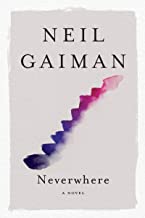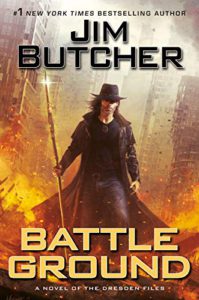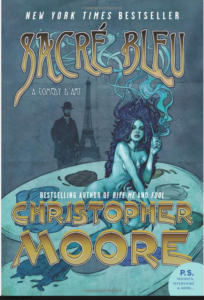Book of the Week
Insignia by S.J. Kinkaid http://www.sjkincaid.com
In November of 2012, I started writing a near-future, dystopian novel. By December 2012, I had a title: Insignia. For those that know what my story is about, you’ll understand why the Insignia is a very important symbolic concept throughout the book. So, the title was an obvious choice, yes?
However, I didn’t do my research, kids. (Maybe I half-heartedly looked, but didn’t search hard enough? I’m not 100% sure how I let this slip by me, but alas, it did). Turns out in July 2012, S.J. Kinkaid also had the idea to entitle her first book similarly. Not only that but the similarities between her story/world setting and mine are uncannily similar. More on this later…
Anyway, in Nov ’12, I thought my title was unique…it wasn’t. What a very unfortunate coincidence!
(Though this is not the first coincidence where I am channeling the mindset of current pop culture trends. Look for my “Love in the Time of Zombies” post later this month).
In the end, Anamnesis is a better title. It sounds cooler and is more related to my story as a whole. However, the lesson here is—do your research and don’t procrastinate! Get yo’ shit out there!
I debated whether or not I was going to buy Insignia, because I knew I’d be extra scrutinizing to it for similarities and (let’s be honest) places where it doesn’t meet my expectations. Ultimately, I decided “why not?” After all, Veronica Roth said about this book:
“Insignia expertly combines humor with a disarming and highly realistic view of the future. The characters are real, funny, and memorable. You won’t be able to put this book down.”—Veronica Roth, #1 New York Times bestselling author of Divergent and Insurgent
It’s gotta at least be entertaining, right?
![Insignia by [S. J. Kincaid]](https://m.media-amazon.com/images/I/51Y2I0sIeAL.jpg)
Last week, I finally finished reading Insignia, so I bring to you an honest-to-goddess book review with your book recommendation of the week!
The TLDR Summary
I’d give it probably a 3.5 stars of 5, mostly because I know there is a sequel, but I don’t feel particularly driven to read it. It was a quick read and the mystery held my attention well enough, but the characters are under-developed and their motivations sometimes feel thin. And there are places where I skipped multiple pages in a row because it just felt far too info-dumpy.
The Long Review
First of all, I noticed that the premise is eerily similar to mine: It is set during WWIII (where mine is after), features evil mega-corporations, and focuses on a socially-awkward, geeky teenager who is living a slum life (with his dad going from casino to casino) but is really good at computers, (in this case VR fighting games). But that’s where the similarities (mostly) end.
Ultimately, he is hired by the government to take part in the super-secret WWIII space-force flying unmanned drone ships. He has typical teenage interactions in the super-secret government high school that involve girls, best friends, awkward frenemies and, oh yeah, high-tech implanted brain computers. It’s a pretty neat concept because it delves into the difference (and similarities) between computer processing and cognitive science while also visualizing the effects of a war where no one dies and what happens when the corporations take control.
However, there were a few places where it falls short which I’m having a hard time reconciling with.
Story-wise, it didn’t have a ton of dimension. Instead it stuck to a simple flow with a happy ending. It’s written in 3rd person from 1 kid’s perspective with fairly basic linear time progression. This is great for teens and even middle-grade readers, but as an adult reader, I felt that it went a bit slow in places. Also, I am definitely too old for the teenage drama (And this is coming from a person who really enjoys YA fantasy/sci-fi). I wouldn’t call it as much of a coming-of-age story but more of a becoming-a-teenager story.
I really wanted to like awkward, nerdy Tom Raines but by the end of the book, I still didn’t. While he did grow a little by the end, it wasn’t really enough IMO. His progress did not inspire me to root for him. For all his “skill” and “specialness”, he ended up being an mind-numbingly ordinary and powerless teen. Most of his successes seemed like coincidence or were because of intervention from others.
Additionally, his immaturity was a huge turn off. He was supposed to be in the first year of high school (at age 14) and had already spent years drifting with his father. This made him independent in some ways (like he’s just walking around DC by himself). However, he and his friends regularly acted younger, almost middle-school-esque.
Each time he came close to capturing my heart, he’d say or do something stupid that would then cause me to write him off again. He claimed he was “ruthless” when it came to playing video games, but IRL, he was a shy loser who didn’t speak his mind. By the end of the book, he gains a speck of compassion (too late, obvs), but by that point, it was not really enough to have me cheering for him. Mostly he just seemed self-absorbed and detached from reality, not like a hero who just saved the Pentagon.
The supporting characters also were pretty flat which is what really makes me feel “meh” about the sequels. She drops threads of interesting content about Vik, Wyatt, Lieutenant Blackburn, and the others, but not enough to send me to book two. And in Lt. Blackburn’s case, she unveils enough about his background that his intrigue is already revealed.
The bad guys, like Dalton (the scary mega-corp, “Dominion Agra.” rep) were *just really bad* without any empathy or much humanness to them. The good guys OTOH were a bit more 3-dimensional. Some of them had visible internal conflicts and swings of “badness” or “goodness”. However, even in these cases, the swings were so sharp it gave me whiplash.
Additionally, the character of Lieutenant Blackburn could have been such a perfect tragic, bitter, military-experiment gone wrong, pull yourself up out of your misfortune character, but he ended up just being a crazy, angry, narrow-minded, manipulative douchebag. So, that was a big disappointment.
I did like Tom’s dad, Neil, and thought of all the characters, he grew the most. And he was barely in the book at all. I’d love to learn more about Neil and his “fuck the system” ways…which proves that Kinkaid has the ability to add depth and arcs to her characters. For Tom, she lazied-out by keeping that awkward teenager vibe pulsing HARD.
For Blackburn he’s just 1 cliche after another. She picked the most tragic-est backstory she could, then added a sprinkle of vendetta against a cold, unethical Russian scientist which he would keep to the detriment of literally everything else. Then add on top of that a genius, crazy mind that could go from curing cancer or destroying the establishment in the blink of an eye.
Lastly, with regards to the “Insignia” title: The insignia in question is actually on the cover (I think?) but it was not highlighted enough for me to realize it until the last 5 or so pages of the book. Some will argue that titles & cover art do not have to intimately tie into your book but I disagree. It’s the title and the cover that get you right?
On the plus side, the world she developed was rich and well thought out. While some of these expositions were a bit too info-dumpy and could have belonged in an appendix, she at least had a good idea of the events leading up to WWIII. Her military structure and protocol were believable. She had interesting tidbits about the history before present-day including neutron bombs, genocide, and how the countries would work together in the future.
She had an involved tech arsenal that included super cool high-tech gadgets, but also tech interspersed in the world to make “every day life” seem different than 2020. (Which is really one of my pet peeves in near-future sci-fi. Stories that have their **one big tech thing** but the rest of the world looks pretty 2000s in fashion, transportation and all that. Kinkaid included enough sci-fi to make it feel futuristic.
Overall, if you have nerdy teenagers in your life or you want a near-future YA sci-fi with a simple storyline, some neat-o tech, and a HEAVY dose of teenage immaturity, this book would be good for that. It’s a quick read, and paints a vivid picture, which might just be the escape you need during these COVID t imes. You can pick it up on Amazon here:
Happy reading!
Lyndsie Clark is a participant in the Amazon Services LLC Associates Program, an affiliate advertising program designed to provide a means for sites to earn advertising fees by advertising and linking to Amazon.com.



